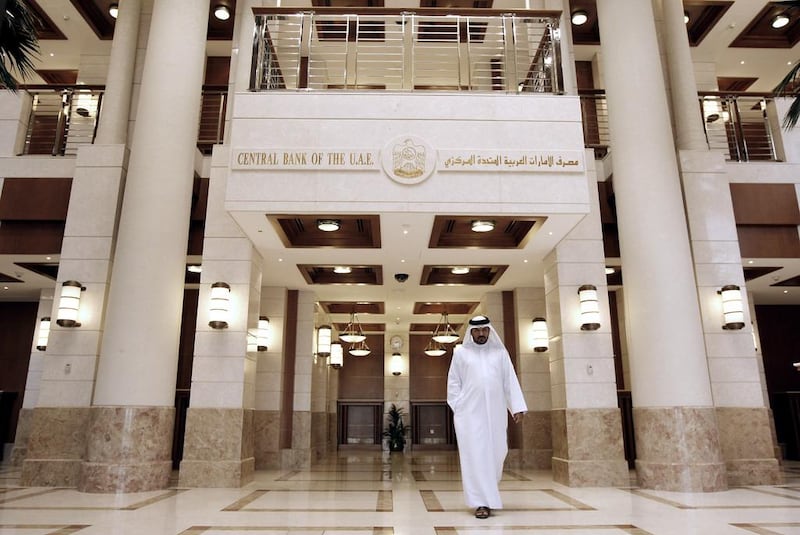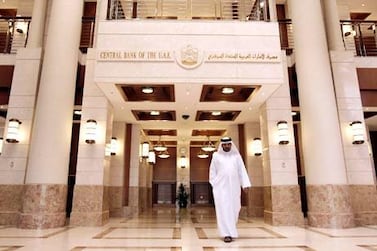The Central Bank of the UAE (CBUAE) is rolling out additional measures within the Targeted Economic Support Scheme (Tess), relaxing two key liquidity requirements to boost capacity of banks, in order to extend more support to companies and individuals amid the Covid-19 crisis.
The banking regulator is reviewing the existing thresholds of two prudential ratios: the Net Stable Funding Ratio (NSFR) and the Advances to Stable Resources Ratio (ASRR) by "temporarily relaxing the requirements for the structural liquidity position of banks", the CBUAE said in a statement on Saturday.
The central bank will "temporarily relax" the mandatory threshold for key ratios and the measures will remain effective until the end of next year. For the NSFR, banks will be allowed to go below the 100 per cent threshold, but not lower than 90 per cent. For the ASRR, lenders can go above the 100 per cent threshold, but cannot exceed 110 per cent, it said.
"This step comes as an additional measure encouraging banks to strengthen the implementation of the Tess and support their impacted customers in overcoming the repercussions of Covid-19 pandemic," the CBUAE said.
The central bank first rolled out Tess in March as it unveiled a Dh100 billion stimulus package to back companies and individuals affected by restrictions to curb the coronavirus. This included Dh50bn of zero-cost collateralised loans and a loosening of banks' capital buffers, giving them more firepower to lend. Further easing of capital and liquidity buffers has since increased the size of the stimulus to Dh256bn.
As of July, 260,000 individuals and 9,527 small-and-medium enterprises (SMEs) availed the interest-free loans under Tess to help them cope with the pandemic-induced slowdown.
SMEs, the backbone of the country's economy, benefited from a total of Dh4.1bn of loans by the end of July, accounting for 9.3 per cent of total amount disbursed. Individuals have received support worth Dh3.2bn from banks, according to central bank data.
The new measures affect the net stable funding ratio, which is mandatory for the five largest UAE banks, and the advances-to-stable resources ratio, which is applicable to all other banks in the country, including foreign branches, the regulator said.
“The relaxation of the two structural liquidity ratios aims to further facilitate the flow of funds from banks into the economy,” Abdulhamid Saeed, governor of the CBUAE, said.
“The temporary relaxation of NSFR and ASRR will supplement the other measures the Central Bank UAE has taken under the Tess to mitigate the impact of the Covid-19 pandemic on private corporates, small and medium-sized enterprises and individuals.”
The purpose of the NSFR and ASRR ratios is to ensure that long-term assets are backed by stable funding resources. Relaxing the NSFR and ASRR will provide banks with more flexibility in managing their balance sheets, the regulator said.
To calculate the NSFR and ASRR, the Central Bank's Zero Cost Funding Facility under the Tess programme should be treated as stable funding with a 50 per cent weight, irrespective of its maturity, it said.
The weight determines the extent to which funding sources are considered as stable, in order to be eligible to fund long-term assets.







